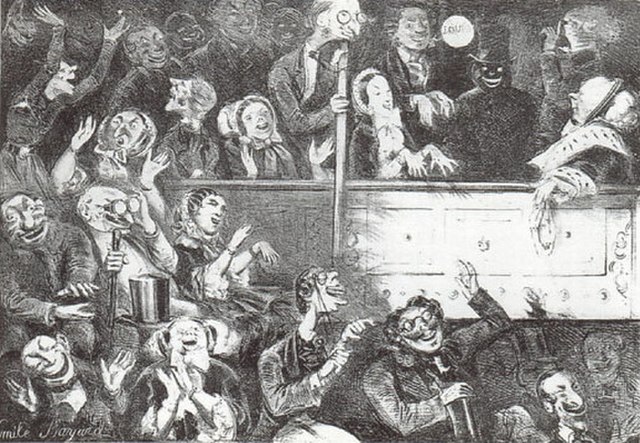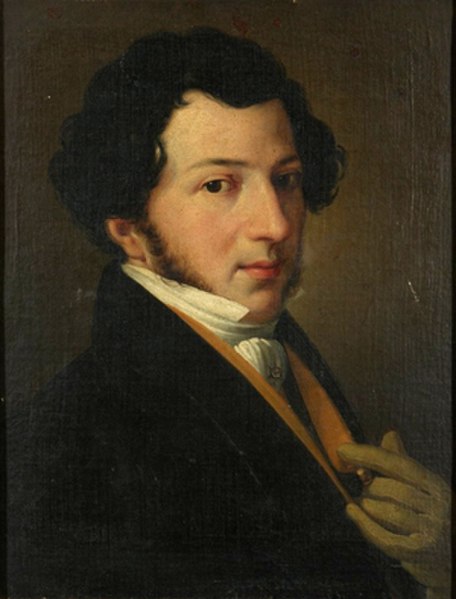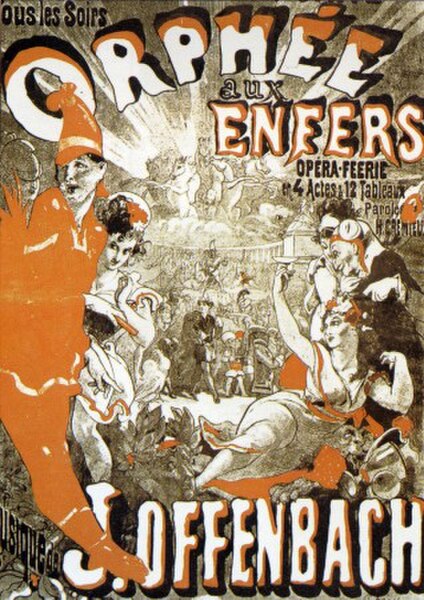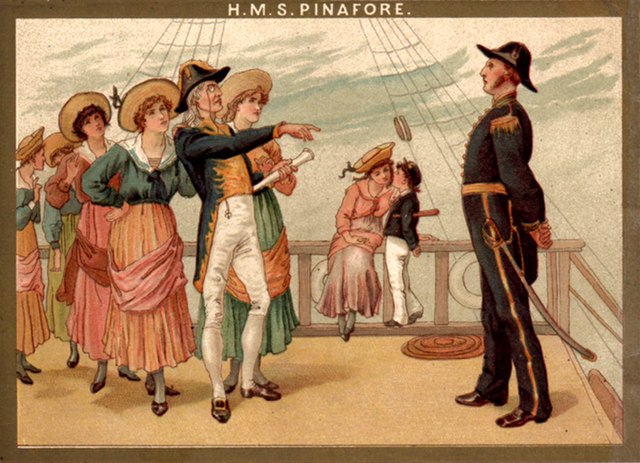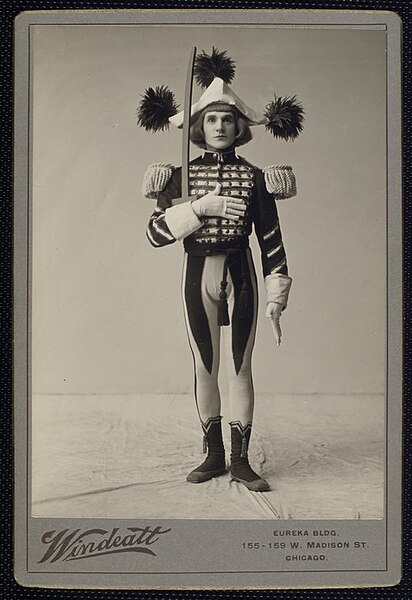Operetta is a form of theatre and a genre of light opera. It includes spoken dialogue, songs, and dances. It is lighter than opera in terms of its music, orchestral size, length of the work, and at face value, subject matter. Apart from its shorter length, the operetta is usually of a light and amusing character. It sometimes also includes satirical commentaries.
The audience at the Théâtre des Bouffes-Parisiens, the birthplace of Jacques Offenbach's operettas. Caricature of 1860 by Émile Bayard.
A Columbia Records advertisement for a recording of Rita Montaner in a production of Eliseo Grenet and Ernesto Lecuona's Niña Rita, o, La Habana en 1830, an operetta from the Spanish genre of zarzuela.
Cover page of Boccaccio, oder Der Prinz von Palermo (Boccaccio, or the Prince of Palermo) by Franz von Suppé in 1879. An example of early Viennese operetta.
Playbill for a revival of Orphée aux enfers
Comic opera, sometimes known as light opera, is a sung dramatic work of a light or comic nature, usually with a happy ending and often including spoken dialogue.
Rossini, circa 1810–1815
Poster for a 19th-century production of Orpheus in the Underworld
Scene from H.M.S. Pinafore, 1886 Savoy Theatre souvenir programme
A "toy soldier" from Babes in Toyland, 1903

